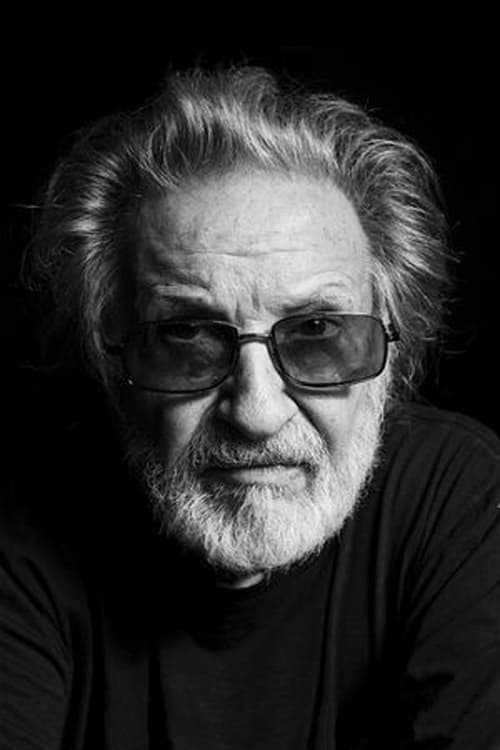
Self
A documentary about the work of filmmaker, screenwriter, actor and film director Ruy Guerra. The audiovisual collage presents the director's trajectory, from his first experience with cinema up to his most recent thoughts on his work.

In 1965, a year after the military coup in Brazil, an oasis of freedom opened in the country's capital. The Brasília Film Festival: a landmark of cultural and political resistance. Its story is that of Brazilian cinema itself.

Screenplay
One man, two lovers: Ana and Anna, living in identical apartments. Paranoia is the name of the game in this hallucinatory.

Director
One man, two lovers: Ana and Anna, living in identical apartments. Paranoia is the name of the game in this hallucinatory.

Self

Self

Director
Carlos is a man doomed by restless memories, that meets with himself, in a time warp. Young Carlos faces the forgetfulness of old Carlos, who doesn't recognize his own appearance. They get a package. But the package seems odd. The knot that ties, the smell, the handwriting on the envelope: this could only be sent by his father, Ernesto, who has been dead for many years. A father who always created unusual situations. In this time warp, Carlos is split in two: one Carlos remembers and the other forgets the moments he spent with his father.
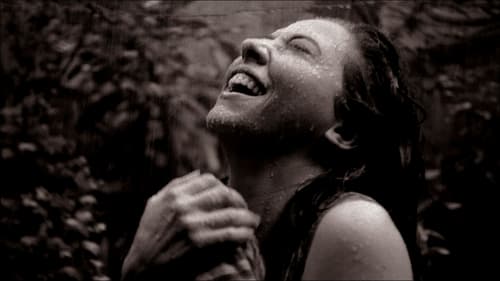
Self - Filmmaker (archive footage)
A deep investigation, in the way of a poetic essay, on one of the main Latin American movements in cinema, analyzed via the thoughts of its main authors, who invented, in the early 1960s, a new way of making movies in Brazil, with a political attitude, always near to people's problems, that combined art and revolution.
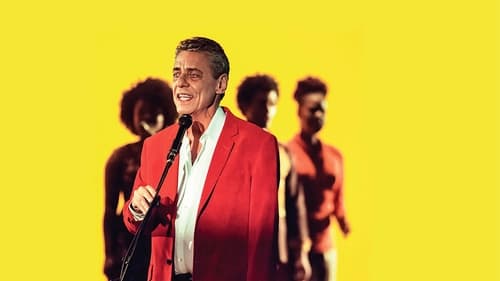
Self
Chico Buarque is a constant presence in Brazil's art scene and makes up its citizen's popular culture. This wealth in music, poems, theater and novels has been created over the last 50 years and in this film Chico Buarque converses about his memories, shows, daily life, work methods, creative process, in summary all his trajectory. The musician’s search for his German brother, whom he never got to meet, serves as one of the axis for the narrative.

An abandoned tumbledown theater in the outback of Paraíba state is the initial setting of a film about cinema, which explores the testimonials of the novelist and playwright Ariano Suassuna and other filmmakers such as Ruy Guerra, Julio Bressane, Ken Loach, Andrzej Wajda, Karim Ainouz, José Padilha, Hector Babenco, Vilmos Zsigmond, Béla Tarr, Gus Van Sant and Jia Zhangke. They all respond to two basic questions: why do they make movies and why do they serve the seventh art. The filmmakers share their thoughts about time, narrative, rhythm, light, movement, the meaning of tragedy, the audience‘s desires and the boundaries with other forms of art.
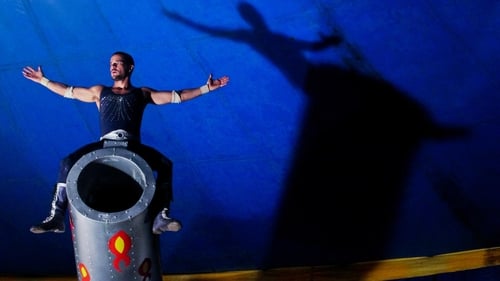
When the Netuno Circus returns to Fernando de Noronha, it brings back a young man with a turbulent past. Pedro is now Zolah, the human cannonball. When secrets surface, bizarre family reunions rival the circus performances.

The project '5 x slum, now by ourselves' gathered over 80 young people from Rio's favelas (slums), selected through workshops, script and filmmaking techniques to create a feature film consisting of five stories that reflect different facets of the daily lives of residents of these communities - with the promise of escape stereotypical representations.

Writer
The old servant and chronicler Dom Sabas tells how his desolate South American town is the scene of a ruthless power struggle. The landowning Assis family, reduced to a widow and son, tries to hold out against the young, despotic mayor. No less effective then actions are anonymous rumors and accusations, which often stir the inhabitants' moves.

Director
The old servant and chronicler Dom Sabas tells how his desolate South American town is the scene of a ruthless power struggle. The landowning Assis family, reduced to a widow and son, tries to hold out against the young, despotic mayor. No less effective then actions are anonymous rumors and accusations, which often stir the inhabitants' moves.

Vasco de Sá
A woman is taken along with her mother in 1910 to a far-away desert by her husband, and after his passing, is forced to spend the next 59 years of her life hopelessly trying to escape it.

Director
The story of the CEO of a recently privatized company.

Writer
After a restless night he is awoken by his doorbell insistently ringing. Through the peephole, he sees a stranger. He doesn't know why that man is there but is immediately certain of one thing: he represents a terrible threat. He quickly dresses and manages to sneak away, no doubt in his mind that the stranger is pursuing him, and that the nightmare has only just begun.

Director
After a restless night he is awoken by his doorbell insistently ringing. Through the peephole, he sees a stranger. He doesn't know why that man is there but is immediately certain of one thing: he represents a terrible threat. He quickly dresses and manages to sneak away, no doubt in his mind that the stranger is pursuing him, and that the nightmare has only just begun.

Director
Rui Sequeira, a former fighter in the Colonial War, resident of a small village of Alentejo, celebrates another anniversary of the Carnation Revolution in the company of his wife and her daughter, the young Sara, with which he has a not so good relationship. On the night of the celebrations, the death of a friend forever alters his live, waking up a whole past long dormant.
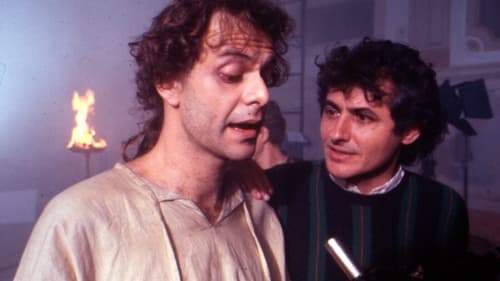
Editor
The story of Brazilian Antônio José da Silva, a jewish poet, playwright and lawyer living in the 18th Century Lisbon, who managed to avoid Inquisition by converting himself to Catholicism, after being tortured. But his fierce criticism of Portugal's élite led him to persecution and torture, becoming kind of a scapegoat.

Director
Telenovela in six chapters adapted from the original screenplay by Gabriel García Marquez, directed by Ruy Guerra and shot in Cuba in 1991.

Writer
Orestes, a rich factory owner, falls for the beautiful Fulvia. They communicate using pigeons, to avoid being discovered by her husband.

Director
Orestes, a rich factory owner, falls for the beautiful Fulvia. They communicate using pigeons, to avoid being discovered by her husband.

Producer
This epic Brazilian film was based on the equally epic novel by Antonio Callado. Set between 1954 and 1964, the film's focus is the saga of Jesuit priest Nando. Fed up with civilization, he ventures deep into Amazon country to live with and work among the Xingu Indians.

Writer
This epic Brazilian film was based on the equally epic novel by Antonio Callado. Set between 1954 and 1964, the film's focus is the saga of Jesuit priest Nando. Fed up with civilization, he ventures deep into Amazon country to live with and work among the Xingu Indians.

Director
This epic Brazilian film was based on the equally epic novel by Antonio Callado. Set between 1954 and 1964, the film's focus is the saga of Jesuit priest Nando. Fed up with civilization, he ventures deep into Amazon country to live with and work among the Xingu Indians.
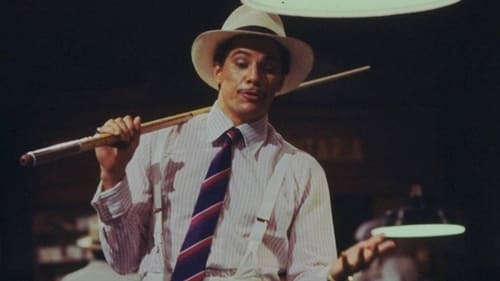
Producer
In Rio de Janeiro's bohemian district called Lapa, during the '40s, a stylish and popular scoundrel exploits a cabaret singer, and earns his living by means of petty swindles. But then he meets Ludmila, the cabaret owner's daughter, who wants to get rich smuggling goods in times of war.

Writer
In Rio de Janeiro's bohemian district called Lapa, during the '40s, a stylish and popular scoundrel exploits a cabaret singer, and earns his living by means of petty swindles. But then he meets Ludmila, the cabaret owner's daughter, who wants to get rich smuggling goods in times of war.

Director
In Rio de Janeiro's bohemian district called Lapa, during the '40s, a stylish and popular scoundrel exploits a cabaret singer, and earns his living by means of petty swindles. But then he meets Ludmila, the cabaret owner's daughter, who wants to get rich smuggling goods in times of war.

Director
The film deals with the judgment of the so-called "compromised", who integrated the colonial apparatus. At Josina Machel school, in an amphitheater with a full audience and balcony, there is a stage where Samora Machel and the members of the Frelimo political committee are located. He records Samora, an impeccable political actor, sometimes histrionic, in the role that he is attributed as the animator of the scene in the trial.
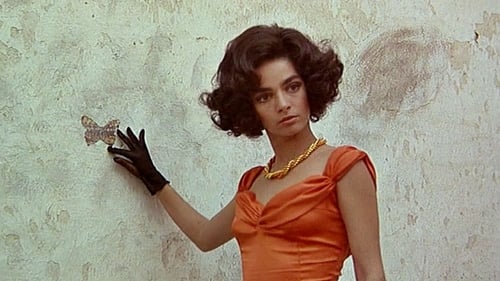
Director
While Erendira, a beautiful teenage girl, has a surreal mystical vision, her grandmother's house catches on fire and burns to the ground. Her grandmother holds Erendira responsible and, in order to extract restitution from the girl, forces her into prostitution. Erendira's surreal mystical experiences continue while her grandmother grows rich from exploiting her.

Editor
Mueda was a massacre. The name is that of the village in Northern Mozambique where in 1960 it took place. The Portuguese colonial regime did the killing. In independent Mozambique, those inhabitants of Mueda who survived regularly re-enact the massacre in situ. They themselves play the roles of victims, assassins, and spectators. Ruy Guerra, now a Brazilian but born in Lourenço Marques (now Maputo, the capital of Mozambique), filmed this extraordinary creation of liberated popular culture, intercutting it with first-hand interviews on the massacre. The mix is compelling, and the grave yet joyous spectacle unique.

Director of Photography
Mueda was a massacre. The name is that of the village in Northern Mozambique where in 1960 it took place. The Portuguese colonial regime did the killing. In independent Mozambique, those inhabitants of Mueda who survived regularly re-enact the massacre in situ. They themselves play the roles of victims, assassins, and spectators. Ruy Guerra, now a Brazilian but born in Lourenço Marques (now Maputo, the capital of Mozambique), filmed this extraordinary creation of liberated popular culture, intercutting it with first-hand interviews on the massacre. The mix is compelling, and the grave yet joyous spectacle unique.

Director
Mueda was a massacre. The name is that of the village in Northern Mozambique where in 1960 it took place. The Portuguese colonial regime did the killing. In independent Mozambique, those inhabitants of Mueda who survived regularly re-enact the massacre in situ. They themselves play the roles of victims, assassins, and spectators. Ruy Guerra, now a Brazilian but born in Lourenço Marques (now Maputo, the capital of Mozambique), filmed this extraordinary creation of liberated popular culture, intercutting it with first-hand interviews on the massacre. The mix is compelling, and the grave yet joyous spectacle unique.

Editor
A true friendship develops between Jojô, a prostitute Rosa, and the young Eduardo, who survive on the streets of Rio de Janeiro. Everything goes well until ambition takes over the trio, causing friends to aim for bigger goals, planning a big assault that could cost them their lives.

A true friendship develops between Jojô, a prostitute Rosa, and the young Eduardo, who survive on the streets of Rio de Janeiro. Everything goes well until ambition takes over the trio, causing friends to aim for bigger goals, planning a big assault that could cost them their lives.
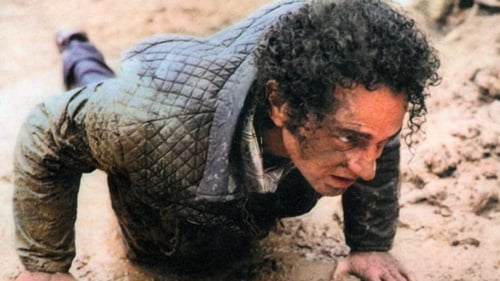
Music
An accident at a construction site, resulting in one death, sets one worker off on a struggle for justice that exposes the mechanisms of exploitation and the class relations of a country that had undergone one decade of fast-paced ‘conservative modernisation’ at the hands of the military. As a sort of sequel to the classic The Guns (1964), following the fate of those characters as they move from enforcers of exploitation to exploited, it offers more than a snapshot of the period: the correspondent time lapses in fiction and reality capture the passage of a chunk of Brazilian history between the two films, and, therefore, also the transformations in cinematographic approaches to the social and political between the two moments. Equally daring in content and form, and in the originality of the adequacy of one to the other, it won the Silver Bear at Berlin.

Editor
An accident at a construction site, resulting in one death, sets one worker off on a struggle for justice that exposes the mechanisms of exploitation and the class relations of a country that had undergone one decade of fast-paced ‘conservative modernisation’ at the hands of the military. As a sort of sequel to the classic The Guns (1964), following the fate of those characters as they move from enforcers of exploitation to exploited, it offers more than a snapshot of the period: the correspondent time lapses in fiction and reality capture the passage of a chunk of Brazilian history between the two films, and, therefore, also the transformations in cinematographic approaches to the social and political between the two moments. Equally daring in content and form, and in the originality of the adequacy of one to the other, it won the Silver Bear at Berlin.

Writer
An accident at a construction site, resulting in one death, sets one worker off on a struggle for justice that exposes the mechanisms of exploitation and the class relations of a country that had undergone one decade of fast-paced ‘conservative modernisation’ at the hands of the military. As a sort of sequel to the classic The Guns (1964), following the fate of those characters as they move from enforcers of exploitation to exploited, it offers more than a snapshot of the period: the correspondent time lapses in fiction and reality capture the passage of a chunk of Brazilian history between the two films, and, therefore, also the transformations in cinematographic approaches to the social and political between the two moments. Equally daring in content and form, and in the originality of the adequacy of one to the other, it won the Silver Bear at Berlin.

Director
An accident at a construction site, resulting in one death, sets one worker off on a struggle for justice that exposes the mechanisms of exploitation and the class relations of a country that had undergone one decade of fast-paced ‘conservative modernisation’ at the hands of the military. As a sort of sequel to the classic The Guns (1964), following the fate of those characters as they move from enforcers of exploitation to exploited, it offers more than a snapshot of the period: the correspondent time lapses in fiction and reality capture the passage of a chunk of Brazilian history between the two films, and, therefore, also the transformations in cinematographic approaches to the social and political between the two moments. Equally daring in content and form, and in the originality of the adequacy of one to the other, it won the Silver Bear at Berlin.

Don Pedro de Ursúa
1560년, 스페인 원정대는 아마존 강 기슭에 있다는 황금의 도시 엘도라도를 향해 모험을 나선다. 아무도 가보지 않은 전설의 땅으로 가는 길이 험난해지자 피사로 장군은 우루수아를 대장으로 임명하고, 40명의 선발대를 뗏목에 태워 강으로 먼저 보낸다. 원정대와 선발대가 약속한 사전 조사 기간은 일주일, 하지만 엘도라도에 대한 강한 정복욕에 사로잡힌 아귀레는 대장 우루수아를 가두고 반란을 일으킨다. 배고픔과 질병, 식인종들의 습격 속에서 작은 뗏목은 커다란 광기에 휩싸이는데...

Six people find a mysterious mark in the center of their left hand and all independently go to Easter Island in hopes to uncover the mystery.

The importance of the Cannes Film Festival in world terms and what it represented for Brazil in 1971. For Brazilian cinema, Cannes 71 represented the transition from film to industrialized production. It is the meeting of producers, technicians, critics , celebrities in general, offering opportunities for greater knowledge and renewal of values

An alien, with the ability to travel through time, visits our planet at various eras.

Editor
In the 1930s, in the South of State of Bahia, Brazil, an adventurer with no name or history, who has already been shot seven times, gets involved in the battle for land and cacao plantations. His plan is to take the place of "Colonel" Santana, taking his wife and money. He starts a bloody conflict, in which many simple people and landowners die.

Screenplay
In the 1930s, in the South of State of Bahia, Brazil, an adventurer with no name or history, who has already been shot seven times, gets involved in the battle for land and cacao plantations. His plan is to take the place of "Colonel" Santana, taking his wife and money. He starts a bloody conflict, in which many simple people and landowners die.

Director
In the 1930s, in the South of State of Bahia, Brazil, an adventurer with no name or history, who has already been shot seven times, gets involved in the battle for land and cacao plantations. His plan is to take the place of "Colonel" Santana, taking his wife and money. He starts a bloody conflict, in which many simple people and landowners die.
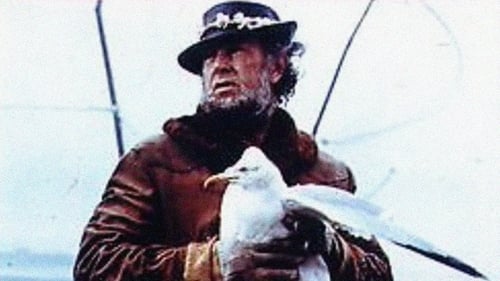
Writer
An ornithologist goes on a field trip to a deserted island near the mainland with his wife and small son, and is joined by the wife's sister, who is getting over an abortion; later, an escaped convict is discovered. A situation which may seem naturalistic enough, but the form never is: incidents are isolated, cross-relations are oblique, emotions are unexplained.

Director
An ornithologist goes on a field trip to a deserted island near the mainland with his wife and small son, and is joined by the wife's sister, who is getting over an abortion; later, an escaped convict is discovered. A situation which may seem naturalistic enough, but the form never is: incidents are isolated, cross-relations are oblique, emotions are unexplained.
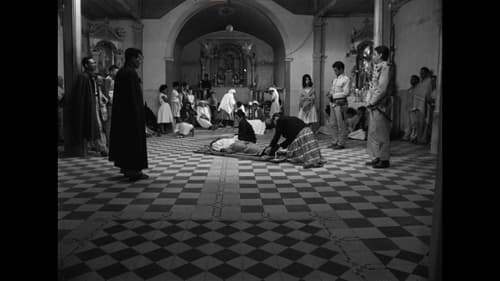
Editor
A group of armed soldiers is sent to the Northeast of Brazil in an attempt to stop a famine-struck population from invading and stealing a food deposit in the dry backlands. While the alienation and insanity of people driven to hallucination by their latent hunger is conducted by the predictions of a religious figure, a truck driver observes the situation and remains torn between his friendship with the soldiers and his revolt against the lack of government action in fighting the misery that lingers over the region.

Screenplay
A group of armed soldiers is sent to the Northeast of Brazil in an attempt to stop a famine-struck population from invading and stealing a food deposit in the dry backlands. While the alienation and insanity of people driven to hallucination by their latent hunger is conducted by the predictions of a religious figure, a truck driver observes the situation and remains torn between his friendship with the soldiers and his revolt against the lack of government action in fighting the misery that lingers over the region.

Director
A group of armed soldiers is sent to the Northeast of Brazil in an attempt to stop a famine-struck population from invading and stealing a food deposit in the dry backlands. While the alienation and insanity of people driven to hallucination by their latent hunger is conducted by the predictions of a religious figure, a truck driver observes the situation and remains torn between his friendship with the soldiers and his revolt against the lack of government action in fighting the misery that lingers over the region.
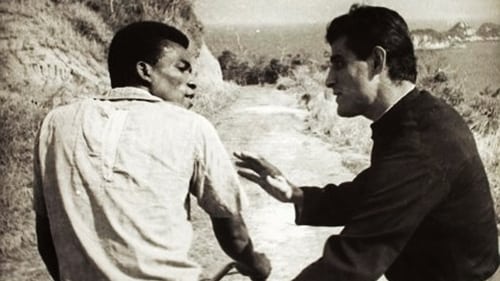
Editor
The film follows two men living in a Rio de Janeiro slum: a black shoe-shiner and a white mill worker.

Assistant Director

Editor

Assistant Director
An unlucky trumpeter and a young singer try to rebuild their lives in Brazilian nightclubs. They will try everything for everything while making a risky heist.
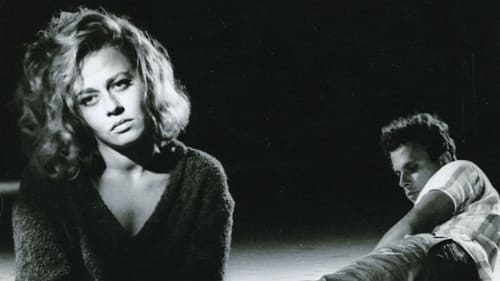
Writer
Upon learning that his rich dad is on the brink of bankruptcy, spoiled Vavá summons his friend Jandir with a plan to get some quick cash: they will blackmail an uncle of Vavá by taking compromising photos of his lover, Leda.

Director
Upon learning that his rich dad is on the brink of bankruptcy, spoiled Vavá summons his friend Jandir with a plan to get some quick cash: they will blackmail an uncle of Vavá by taking compromising photos of his lover, Leda.
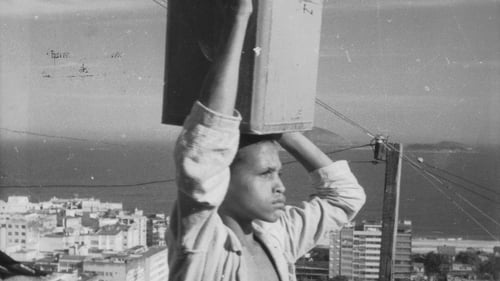
Editor
Five segments about the hardships faced by people living in slums on hills in Rio de Janeiro.

Miguel

Director
